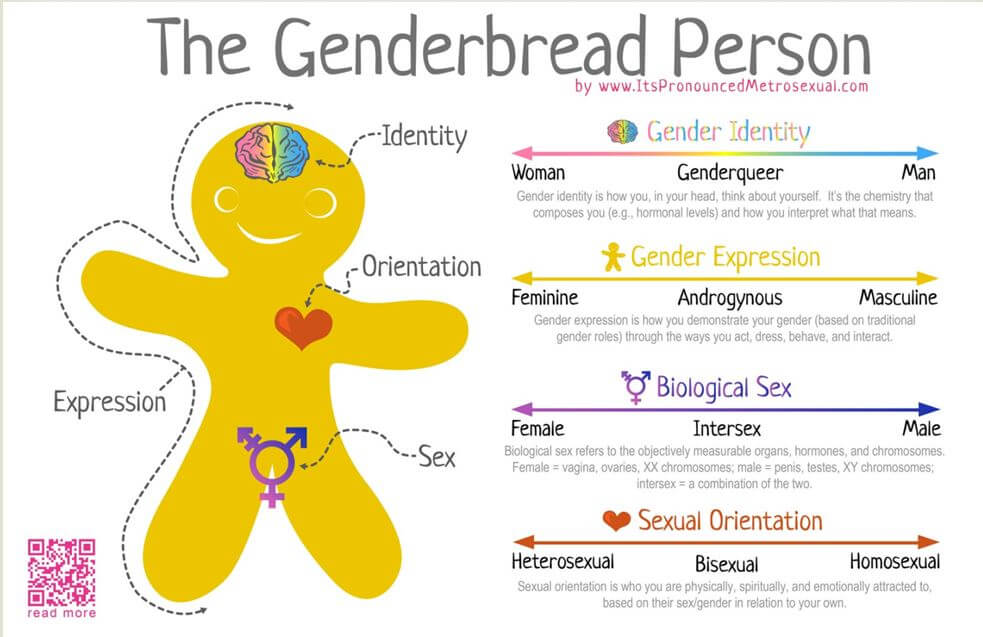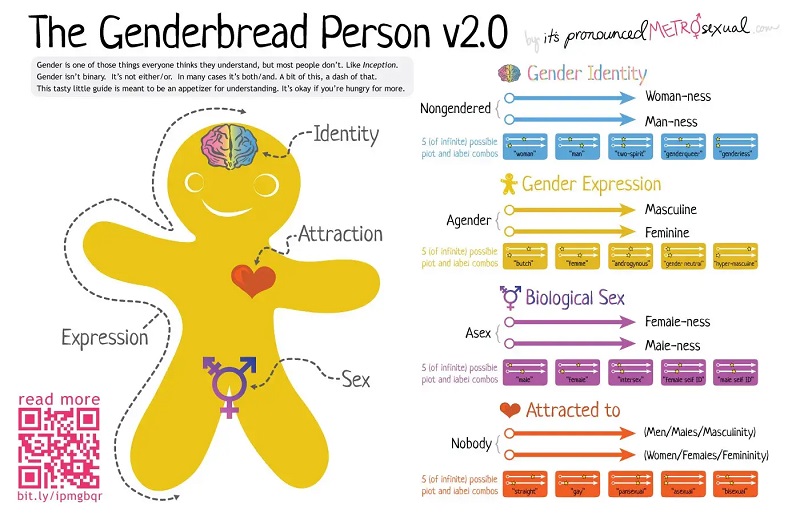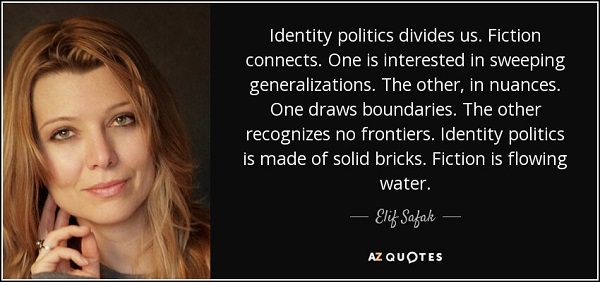One could even argue that this pluralization of the letters of the acronym, its ever-expanding nature and adaptive character is proof of a larger historical and societal change, namely the fact that the queer community itself gets -as the time passes by- more inclusive, diverse, and accepting. It could also be interpreted as a sign of a more progressive intersectional politics, one that shares the visibility and the voice of all its members equally among them as they come to be represented by each letter. Or it could even be seen as a gesture of solidarity that focuses on what we all share, our shared conditions of oppression or the same political aspirations towards change evoking this way a sense of an already existing community or one to come. On the other hand, we should emphasize that some of these letters stand for gender identities or expressions, and some others for sexual identities or expressions. We argued before when we discussed the challenges intersex folks face, the seemingly endless pluralization of the identities and expressions that fall under the acronym LGBTIQA+ does not necessarily translate into greater visibility or inclusivity of the diverse groups that each letter stands for in the alleged ‘community’. The hierarchical relationship among the groups that fall under the acronym casts serious doubt on the taken-for-granted assumption of their equal recognition, visibility, and representation. This has as a result the respective homogenization of their experiences of discrimination and harassment, and hence the flattering of their different -and at times contradictory- political claims. In this context, we argued that such a point of failure can be observed in the case of asexual/aromantic persons whose identity is built around the lack of an attraction, either sexual or romantic, on which the gay, lesbian or bi identities are based.







.jpg)




 Login
Login